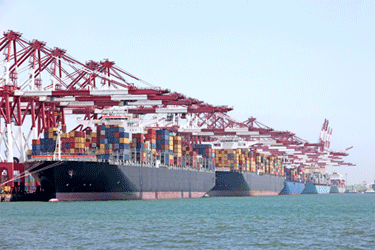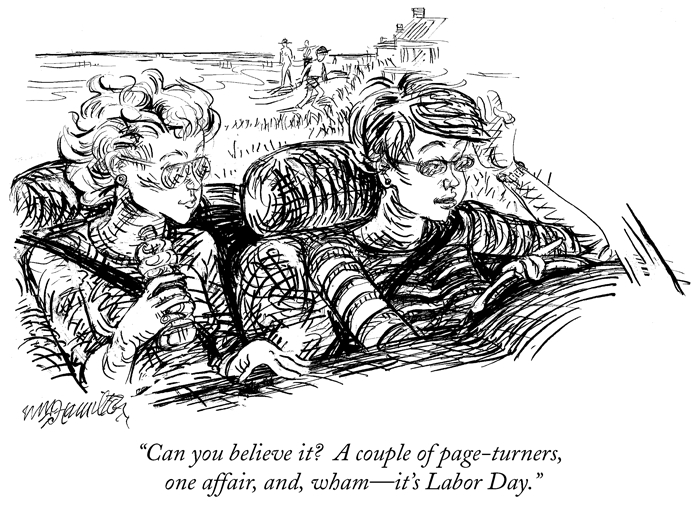
 |
| |
 |
 #INTHEAIREVERYWHERE |
| Vol. 21 No. 33 | Friday
September 2,
2022 |
| |
FIATA Senior Vice President Jens Roemer delivered a speech at the National Chamber of Commerce, Services and Tourism of Chile, CNC, on May 26th 2022 that was registered as webinar by the tile of “Shipping crisis and its impact on the economy”. In my view this is a clear, daring analysis of what happened in the global maritime market after the eruption of the pandemic. Reading the ruthless figures that come out of this analysis makes it perfectly clear that these consequences were perhaps unwittingly written in their premises, if not sought after in the first place. The situation is also a flamboyant example on how western political powerhouses such as the EU and other multinational entities end up being mere paper tigers, hopelessly unable to address the problem. In the HQ debate ignited by FIATA in May this year, Competition Commissioner’s representative specified that “there is no evidence” of market distortion, as though there was an expectation for evidence to “appear” at the Commission’s doors. Evidence is actually something that can be found through appropriate investigation, as seen by the U.S. FMC. Jens Roemer started his speech describing the disruption in the maritime supply chain: according to Drewry, in some trade lanes freight rates have increased 10 times since mid-2020, most affected are Shanghai-Rotterdam and Shanghai-Genoa, going from 3% of goods’ value to nearly 20% according to MDS Transmodal. In the same period the sailings’ reliability index dropped from some 80% to nearing a mere 30%: that means one ship out of three at least does not provide any reliability of service. In the same period the transit time had increased from some 4 days to nearly 7 days on average (source: Sea Intelligence). It seems to me that these are just figures and we all know how fast opposite figures can be piled up to show the opposite. Fact is, if you are operating on these routes you do not need statistics to understand that you are paying ten times as much for a service that is at least one third less reliable than it used to be, why? Jens recaps the issue by saying that there is no schedule reliability, the average delay has nearly doubled and the transit times have massively increased, so the operator works in the dark: you place an order for your product, you hope to ship and keep your fingers crossed, as there is just no certainty in your planning. Since the first quarter of 2008 the average carriers’ operating margin has been stable (with some ups and downs) until 1st quarter of 2020, then it started to surge sharply, reaching a 56.21% progress in the 3rd quarter of 2021. In other words, now conveyance costs ten times more, whilst the service became unreliable and liners’ profits went up sharply . . . so my question is: where’s the money gone? Considering these companies pay less taxes than the average terrestrial, one could fantasize that this money be used to finance a mass escape to Mars!? Jens’s presentation makes me land back on earth and ask: how can this be explained, with compelling questions: are any of you aware of a market that generates record profits, whilst at the same time offering the worst value ever? What are the consequences for other stakeholders: perhaps failure of business models due to excessive costs, SMEs being pushed into the spot market thus made uncompetitive? This contributes to making inflation grow and we have just seen how hard that creeps into your budget. Jens is actually continuing to question the free market economy with regard to shareholders’ expectations. The picture is simple: maximizing profits is a major objective for any company, and this must stand its course in the functioning of a free market, balancing supply and demand to establish the price for goods and services. Shipping lines therefore follow this objective: this is an opportunity to maximise profits and little matters whether this objective is ethical or not. Liners operate in a brutal environment of survival, have lost money in past years and do not find anything wrong in making profits now with the change in their market. Jens Roemer then continues by questioning the actual existence of a free market. Under consortia agreements shipping lines have the right to share data and capacity, so there is question on whether they use these rights trying to match supply with demand to improve their services or they control supply with a view to maintaining rates on the high side. Let me interject this concept by saying that this is precisely the area where the authorities investigate (or sometimes fail to do so unfortunately) to ascertain whether these practices are legitimate or not. Jens stipulates that there is in fact no free market because less than a dozen shipping lines, organised in 3 major alliances have employed vessels with huge size and capacity that make up for nearly 100% of the long global maritime journeys. They often function with a modus operandi protected from antitrust laws and are able to exchange data and to control supply. This is the opposite of how an intact market should function: in an open and free market, competitors would enter the market to benefit from current high profits, supply would increase, prices would come down and level out to reasonable levels. I sympathise with Jens’s assumptions; the history of trade tells us that this is the winning paradigm that historically ensured growing prosperity. In periods of crisis, when resources could not suffice to sustain growth, people emigrated and created new markets. Now, after the globalisation, where are we going to go? The current situation is a consequence of the protected market, in Jens’s own words. Consortia block exemption agreements are limiting the range of correcting measures. Shipping lines fall under block exemption agreements in U.S., EU, China and other legislations, but these exemptions also fall under antitrust legislation, which is made to protect the consumer. Jens continues by stating that shipping lines are allowed to form consortia, which among other things allow discussions and sharing of data, sharing services, volume agreements, but do not allow price discussions, imposing separate marketing policies. There is a dichotomy which is not solved here in my view. In fact, Jens is asking himself: have the block exemption agreements that were supposed to protect the consumer turned against consumer’s interest? Are current freight rate levels the proper making of the block exemptions’ effect? Today’s maritime supply chain is anything but easily understandable according to traditional parameters. The FEWB (Far East West Bound) container market has become like a fish market with no contract: the highest bidder grabs space and equipment and new rules are dictated every day: hence no contractual assurance exists and binding terms are kept in the relics’ shrine. Shipping lines refuse to honour contracts, agreements and past performance, but the same liner that may reject bookings on contractual terms may offer space and equipment in the spot market at inflated rates and a surcharge if you want assurance that the booking is not rolled. How can the consumer be protected against such practices? So, who is to be blamed for the current disaster? Jens continues his hard-nosed analysis observing that shipping lines seem to shrug and start pointing fingers: consumers for unexpectedly consuming more than anticipated, terminals being unable to cope with the volumes, insufficient supply of trucks and drivers, slow turnaround of containers. In reality the building blocks of this indigestible concoction are many and most of them are connected with the insatiable appetite of the liners for “Big” … with capital B. The vessel size is surely the main culprit: for more than ten years shipping lines embarked on a rat race for operating ever larger vessels. Very Large Container Ships became Ultra Large Container Ships (ULCS) and the reason was explained to allow for the economy of scale, the positive impact on unit cost per TEU. May I add from my side: just until the freight rates exploded in the last two years?
ULCS and their impact on the land side infrastructure generated a domino effect cascading into other trades, higher peaks and uneven distribution in the activities of the ports and terminals. Bottlenecks rapidly emerged in various limited land side operations: terminals, trucks and truck drivers, road network, all these were put to test. Traffic jams in and around terminals and collapsing infrastructure became normal and improvements – paid with tax payers’ money – were not always available. In addition, the free time from demurrage and detention was reduced, which added another layer of increase in costs. In principle this situation could trigger the vivacious arrival of new entrants, and some indeed peeked out: some BCO shippers, such as Alibaba, Walmart, Home Depot and others chartered their own ships and new shipping lines are entering the trade (BAL Container, China United Lines (CULINE) etc. but some vessels had to wait weeks before finding a berth to discharge. It is unclear whether this is a temporary development: if rates come down as they seem to do right now, vessel size will matter . . . Jens maintains that the real cause is the vessel size and limited land side infrastructure, but I may argue that liner shipping gigantism has also determined the economic decline of many once flourishing smaller ports, with their panoply of related businesses collapsing into nothingness.  The
COVID19 arrived on this stage in 2020 and the result of this hard-earned
inferno came to fruition with its bitter retribution. Jens Roemer observes
that the supply side was locked down early in 2020, China being the first
region to be locked down. Most supply chains were disrupted, then we had
the lockdown on the consumption side in mid-2020, as the consuming developed
countries started their lockdowns in various phases. The
COVID19 arrived on this stage in 2020 and the result of this hard-earned
inferno came to fruition with its bitter retribution. Jens Roemer observes
that the supply side was locked down early in 2020, China being the first
region to be locked down. Most supply chains were disrupted, then we had
the lockdown on the consumption side in mid-2020, as the consuming developed
countries started their lockdowns in various phases. There was an explosion of consumption in the USA as of Q3 2020, which was fuelled by fiscal stimulus packages, unemployment support, together with the money saved in services such as holidays and entertainment, which had become temporarily unavailable. This triggered huge spending in consumer products, home improvements, etc. Most goods were made in Asia, in particular in China, and driven by robust consumer demand flooded the shipping lines and their consortia. The capacity management factor then kicked in. Shipping lines laid vessels off in the early stages of the lockdowns in 2020 by idling some of their vessels and deciding to allow blank sailings. Here Jens’s analysis gets more acute: as of Q3 2020 shipping lines put capacity back, but was it too late and too slow? The global focus of consortia was to address the early and main disruption in the USA container capacity whose demand exploded in Q3 2020, consequently rates increased dramatically, then shipping lines moved capacity into the trans-pacific area to maximize profits and satisfy demand: as a consequence, other trade lanes experienced a short supply, igniting a knock-on effect. Jens argues that the global focus of consortia to the predominantly U.S.-based consumer boom led to imbalances in other trade lanes due to the shifting of capacity, affecting the whole world and leading to a global disrupted maritime supply chain. I argue instead that once you learn how to play a winning game, as this appeared to be, you wish to play it over and over again, if nobody comes to stop you. Then Jens’ presentation comes to shipping lines’ vertical integration, which is a subject directly affecting forwarders’ fortunes. The liners’ not so secret plan is controlling the maritime supply chain from door to door, to become “the integrators of container logistics”, so shipping lines are inclined to “fish in the forwarder’s pond” in their attempt to integrate the SC. This is nothing new, there have been several attempts in the past and some failed, in general because there is little understanding of the forwarder’s added value. “Forwarders are more than just a filter between the shipper and the shipping line to deal with inefficiencies of shipping lines and their documentation,” is Jens’s remark and he maintains forwarders should not be afraid of competing with shipping lines, as long as this happens on fair terms, on the same level playing field. Jens then mentions a few strong points suggesting a level playing field is far from achieved: the market and situation has changed through mergers and acquisitions, as a result only a few global shipping lines are left to choose from. On the other hand, the focus on unit cost is shifting to shipping lines trying to improve their service levels by investing their massive profits in sizable logistics companies (Maersk, CGM-CMA, etc.) even trying to integrate other segments such as air cargo. Unlike forwarders, shipping lines befit from competition law exemption under the consortia umbrella agreement, have access to shared data often precluded to forwarders and benefit from state aid and government support, forwarders can only dream about. So the level playing field is actually not there. Even worse, the industry is facing unfair practices and the discrimination of merchant haulage services in less than flawless practices related to demurrage and detention, free time, inland container pick up and drop off charges, tampering with essential rights in merchant haulage inland etc. In other words, the ambition to integrate the supply chain often takes the colours of an outright monopoly, which is inauspicious for the development of international trade and could trigger an important retrenchment in production, in particular from farther markets. At this point Jens’s lesson takes a look at the reality in the U.S. and this analysis has already been covered by the FlyingTypers in a recent interview, no need to repeat the same concept that can be easily brought back to memory at the following link: In conclusion what have we learnt from Jens Roemer’s presentation? Perhaps the first lesson is: bigger and bigger not necessarily means better and better. Then we have learnt that market distortions, the famous expression that is not well received by the extremists of deregulation, actually exist. Protecting trade from market distortions may make sense, as long as we do not exaggerate on the other side. Protection in fairness is a sound concept, stifling free trade – in the attempt of protecting it – is never a good idea. As in many other circumstances of life, balance is the golden rule of trade, as it contributes to keeping prices affordable and customers attracted by the existing opportunities. My suggestion to the liner shipping industry is then to replace the capital B in Bigger with a capital B in Balance, so that both shipping lines and their customers can thrive within a more manageable shipping market in future. Marco L. Sorgetti |
 |
Eat until your hands get tired! There’s lots more when sharing comes from the heart!  “You
can learn a lot about each other by sitting down with our team and service
partners and enjoying a meal together,“ declares Mark Thiermann Regional
Director South America-ATC Aviation Services AG. “You
can learn a lot about each other by sitting down with our team and service
partners and enjoying a meal together,“ declares Mark Thiermann Regional
Director South America-ATC Aviation Services AG.“ATC has served Korean Air for more than 20 years. “Here we celebrated and said thanks for that milestone of service, cooperation and friendship by sharing a rich culinary experience of superb Korean cuisine," Mark said. From the looks of that groaning board, just about every taste had a place at this harvest home and nothing was left out. “Not only do we adhere to the high procedural standards of our represented airlines, but ATC is always working to deepen our relationships by sharing and developing better understanding all around,” Mark noted. What’s next? “Let's go for more!,” Mark Thiermann exclaimed. |
|
 |
|
Geoffrey, Dietmar Focke
Thank you Geoffrey, what a great story. Thanks for sharing this prestigious background information. Will respectfully keep this in mind. Best,
Geoffrey Arend picking up on our new board
and pointing out the historic significance of the background. Challenge
accepted!
Michael Webber, Webber Air Cargo
|
If
You Missed Any Of The Previous 3 Issues Of FlyingTypers Access complete issue by clicking on issue icon or Access specific articles by clicking on article title |
||
 Vol. 21 No. 30 Seems We Have Heard That Song Before Chuckles for August 3, 2021 The Discrete Charm Of A True Innovator Meanwhile Back At The Ranch Blue Dart Scores A Financial Whopper |
|
|
Publisher-Geoffrey Arend
• Managing Editor-Flossie Arend • Editor Emeritus-Richard
Malkin Film Editor-Ralph Arend • Special Assignments-Sabiha Arend, Emily Arend |
Send comments and news to geoffrey@aircargonews.com
|